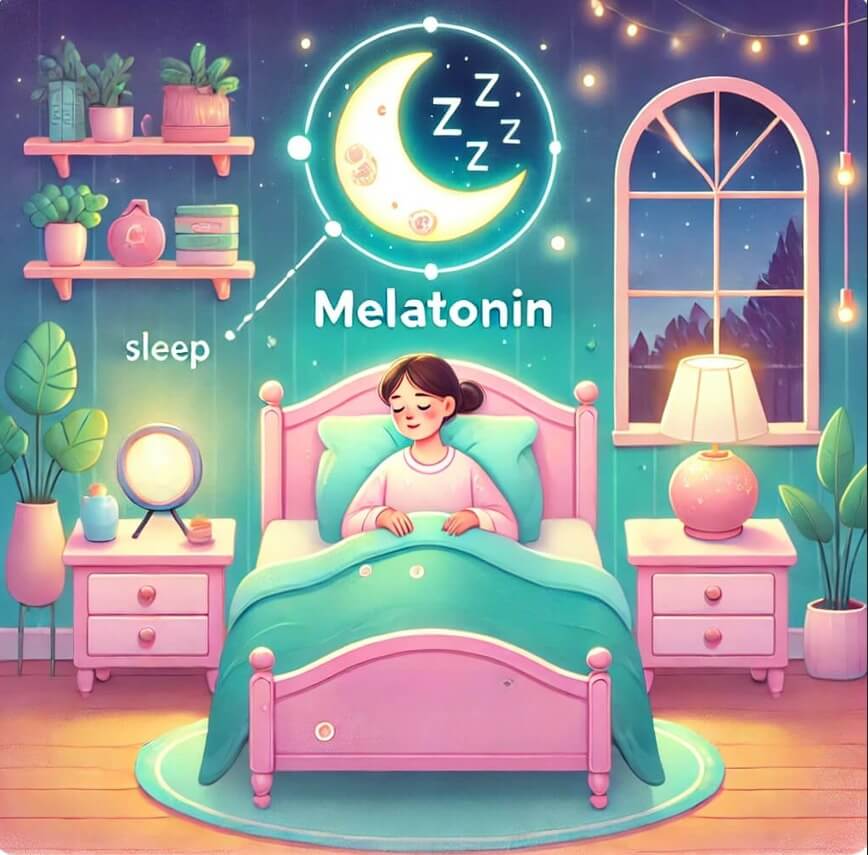Psoriasis is a persistent autoimmune illness that causes excessive skin cell proliferation, resulting in thick, red, and itchy patches on the skin. While genetics, immune system dysfunction, and environmental factors all contribute to psoriasis, sleep is an important but frequently underestimated element. Here’s why you should emphasize healthy sleep in your psoriasis management strategy.
How Psoriasis Impacts sleep
1. Physical Discomfort
Psoriasis frequently produces severe itching and pain, which can make falling and keeping asleep difficult. This irritation might cause sleeplessness and worsen skin conditions.
2. Psychological Effects
The visible symptoms of psoriasis can result in humiliation, anxiety, and depression, which can disrupt sleep quality and create a cycle in which poor sleep exacerbates both skin conditions and mental health.
3. Medication Side Effects
Some psoriasis treatments can interfere with sleep, which highlights the importance of utilizing comprehensive care options.
How Sleep Affects Psoriasis
1. Immune System Disruption
Not getting enough sleep can make your immune system work less well, which can make inflammation and worsen your skin condition. Getting enough sleep helps keep your immune system in check and lowers inflammation.
2. Stress and Flare-Ups
Stress levels rise when you don’t get enough sleep, which can make your psoriasis flare up. Taking care of your sleep can help you deal with stress and decrease inflammation.
3. Psychological Impact
Sleep loss can lead to irritability and frustration, making skin conditions harder to control.
4. Gut Health
Sleep habits affect gut health, and bad sleep can disrupt the gut microbiome, possibly leading to skin flare ups.
Given the complex nature of the link between skin problem and Sleep, it is obvious that Comprehensive or Holistic care for Psoriasis needs to take into account the Psoriatic’s sleep routine. Addressing the sleep disturbances of the Psoriatic helps in effective control and treatment of the disease and improves their general quality of life.
Tips for Better Sleep and Psoriasis Management
- Stick to a Sleep Schedule: Go to bed and get up at the same time every day.
- Get 7-8 Hours of Sleep: Aim for excellent sleep at night.
- Create a Relaxing Environment: Keep your bedroom cold, dark, and quiet.
- Limit your screen time: Avoid using screens an hour before bedtime.
- A heavy meal or a cup of coffee right before bed might interfere with your sleep.
- Regular exercise helps you fall asleep sooner and deeper.
- Manage Stress: Use relaxation techniques such as meditation and yoga.
- Minimize Afternoon Naps: Take just short (15–20 minutes) naps if needed.
Your psoriasis control and general well-being will be much improved by bettering your sleep patterns. Good sleep is more than simply slumber; it’s a vital component in the improvement of your health and for healthier skin.
Mechanism
Next, we’ll look at the ‘technical’ aspects of the sleep-psoriasis relationship, or the processes that support it.
Cytokines: The Sleep-Inflammation Link
Pro-inflammatory cytokines, which are crucial signaling protein molecules in the immune response, play an important part in the sleep-psoriasis link. These chemicals control immunological responses, inflammation, and general bodily homeostasis. Poor sleep, on the other hand, can increase levels of these cytokines, upsetting the balance of pro-inflammatory and anti-inflammatory responses. This imbalance causes systemic inflammation, which worsens skin conditions.
Hypothalamic-Pituitary-Adrenal (HPA) Axis: Stress and Psoriasis
The Hypothalamic-Pituitary-Adrenal (HPA) axis is a complicated neuroendocrine system that regulates the body’s stress response. It generates cortisol, a stress hormone that controls inflammation, mood, and behavior. Cortisol levels naturally vary, increasing in the early morning and dropping at night. This rhythm is essential for sustaining a normal sleep-wake cycle.
Sleep loss can affect hypothalamic function, leading to cortisol level imbalances and HPA axis dysregulation. This dysregulation exacerbates inflammatory reactions in people with psoriasis. Additionally, elevated pro-inflammatory cytokines from poor sleep can further trigger the HPA axis, increasing cortisol release and worsening skin problems and health.
Melatonin: The Hormone of Darkness and Skin Health
Sleep, often known as “beauty sleep” in dermatology, is vital for the body’s repair, rejuvenation, and rebooting processes. Melatonin, the hormone responsible for regulating the sleep-wake cycle, is essential in this process. Peak melatonin secretion occurs between 2 and 4 a.m., however light exposure can reduce the production of it.
Melatonin offers several benefits for individuals with psoriasis:
- Anti-Inflammatory: Diminishes the generation of cytokines that promote inflammation.
- Antioxidant: Reduces oxidative stress linked to psoriasis by combating free radicals.
- Immune Modulation: Helps control the immune reaction in autoimmune conditions like psoriasis.
- Skin Barrier Function: Improves skin barrier integrity and wound healing, which is essential for psoriasis therapy.
Poor sleep quality or inadequate sleep impairs melatonin secretion, reducing the body’s capacity to self-repair and worsening psoriasis symptoms.
The Benefits of Wheatgrass Powder: Enhancing Sleep and Boosting Immunity
Wheatgrass powder is a superfood that is full of nutrients and good for you in many ways. It indirectly stimulates more melatonin production , which helps control sleep cycles and make sleep better. Wheatgrass , magnesium, and tryptophan help the body make more serotonin, which raises melatonin levels. The antioxidants also protect the pineal gland, which helps with good sleep habits.
Wheatgrass is also a powerful immune booster. It contains vitamin C, zinc, and chlorophyll, which strengthen the immune system by promoting white blood cell production and detoxifying the body. The enzyme superoxide dismutase (SOD) in wheatgrass further protects cells from oxidative stress, enhancing overall immunity.
Conclusion
It’s clear that psoriasis and sleep are linked. Getting more sleep might help your overall health and your skin conditions. Adding wheatgrass powder to your routine can help your body stimulate more melatonin production, which can help you sleep better and fight off sickness. Follow these suggestions to get better sleep and take care of your health. A big part of taking care of your psoriasis is making sleep a priority.

Recent Comments